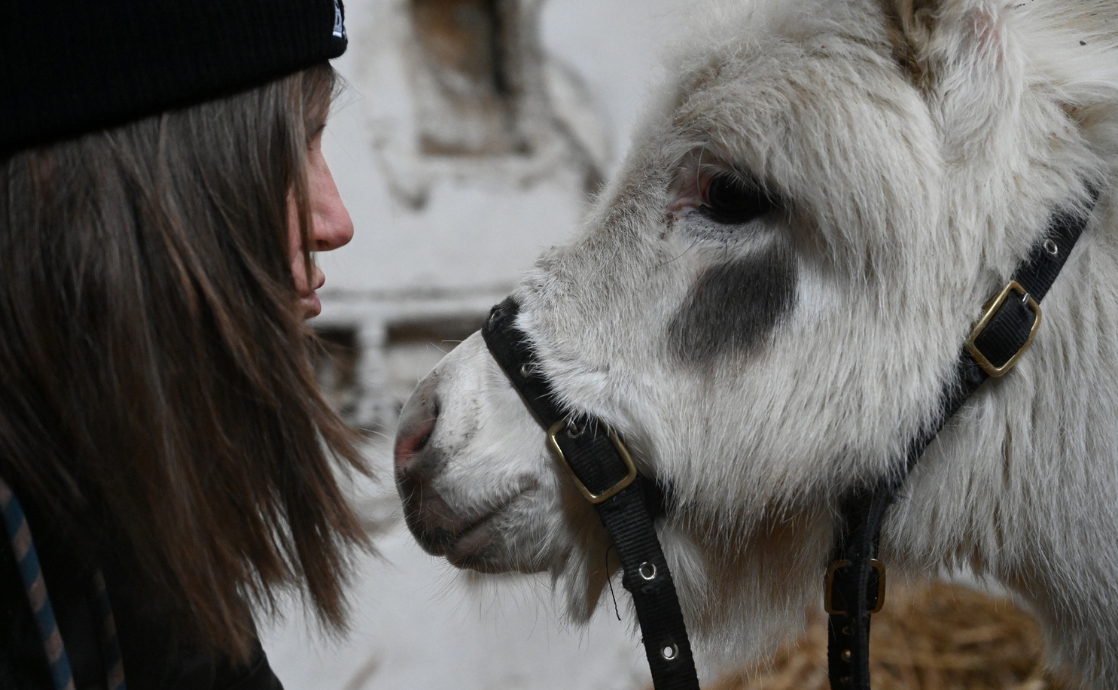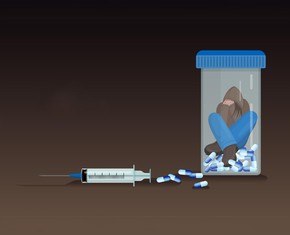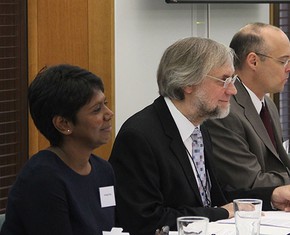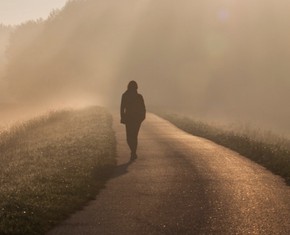The views expressed in our content reflect individual perspectives and do not represent the authoritative views of the Baha'i Faith.
I held Darwin’s food bowl out to him. It was breakfast time at PrimRose Donkey Sanctuary, usually Darwin’s favorite time of day. He hung his head and turned away.
Darwin had come to PrimRose a year earlier, emaciated, teeth worn down to nubs, his tawny-grey and white coat patchy and dull. He’d been nursed back to health with meals of warm mash made of hay pellets, and lots of love.
I’d already been volunteering for several months at the sanctuary. I had never intended to volunteer but my daughter Mehra had been insistent. “You should go, Mom. You’ll love it.”
She had started volunteering at PrimRose and kept pestering me to go. I refused. As much as I loved animals, I was struggling enough. At five years old I’d been molested by a family acquaintance, and by the time the submerged memory surfaced, my life was in flaming ruins. After a divorce and years of counseling, now, in my second marriage, I was as happy as I’d ever been. I was learning to heal myself using energy healing techniques similar to Reiki, but even so, despair and feelings of panic were never far away. I’d learned that doing too much, over-extending myself, led to downward spirals that could last days, weeks, or even years.
RELATED: Is Caring For Your Mental Health a Spiritual Practice?
I’d been a Baha’i since 1992, but the struggles I had since childhood continued. Baha’u’llah’s teachings challenged me, gave me hope and made me rise beyond my small perspectives, but some of them seemed incomprehensible to me, like this one: “I swear by My life! Nothing save that which profiteth them can befall my loved ones. To this testifieth the Pen of God, the Most Powerful, the All-Glorious, the Best-Beloved.”
I longed to trust God, longed to release myself from fear, but although I had faith in God, I didn’t trust Him. After all, couldn’t God have stopped me from being abused? Deep down, I felt abandoned. If I was going to stay safe, it was up to me.
“No,” I told Mehra. “I’ve got enough to do!”
But Mehra was relentless. Every Sunday when she got back from volunteering, I heard stories about the sanctuary’s residents. There was Hannah, the mini donkey shaped like a dumpling who threw tantrums if she was separated from her best friend Sadie; Harry, a nervous, overweight fellow who liked to be in charge; Joey, a huge donkey who was gentle and affectionate, despite his heartbreaking history of abuse, and Sheeyore, an aged sway-backed donkey who had dementia and “introduced” herself over and over.
What could it hurt, going occasionally? I won’t commit to anything, I told myself.
At first, I was overwhelmed. New situations are hard for me, and I had so much to learn. But far from being depleted, I found being around the donkeys deeply healing, like on the day I was troubled about a family situation. The donkeys seemed to sense my sadness and stayed close. Three of the bigger donkeys surrounded me and took turns resting their heads on my shoulder, giving me “hugs.” One of them nibbled my cheek in a kiss. They stood in a protective half-circle, nuzzling and kissing me, while tears streamed down my cheeks.
Like me, the donkeys were survivors. Some of them, like the chocolate-brown hinny named Carl, carried deep psychological scars, and didn’t let humans close to them. Others, like gentle Joey, seemed to realize they were finally home, finally safe.
I had mentioned to Sheila, the sanctuary founder, that I struggled with PTSD but had found relief doing energy healing. When Darwin arrived, so broken and close to death, Sheila asked if I could work with him. Everything I’d learned about healing had to be adapted to equines, but miraculously, Darwin lived. As he gained strength, it was a joy seeing him living his “happy ending.”
I continued working with the sanctuary animals, working with the same white-knuckle determination that I did for my own healing, trusting in God … sort of. Mostly, I trusted in my own determination to fix everything. Every so often, a donkey that I’d worked with died, reminding me that I wasn’t God. “Release the outcome” became my mantra. I even convinced myself that I was doing it.
Maybe because of his Lazarus-like recovery, Darwin was special to me. He reminded me of my big-hearted white labradoodle, Oliver, who’d died suddenly almost three years earlier. Even though both had suffered at human hands before being rescued, like Oliver, Darwin loved people. And, like Oliver, Darwin loved to eat.
Darwin had a stall right next to where Sheila prepared meals for special-needs residents. As his breakfast mash cooled from the boiling water used to make it, Darwin would crane his neck around the edge of the stall, fixing an eye on Sheila. With lower lip trembling in anticipation, he’d loudly complain about how long it was taking. “It’s coming! It’s coming!” she’d say, laughing. His lunch, being prepared at the same time, was set aside for later. By 10:30, Darwin would be back to his stall, standing vigil for his next meal.

But now Darwin had turned away from his food.
Fighting back fear, I worked with him, trying to help balance his system. But although he looked brighter by the time I left, I couldn’t pinpoint the problem.
RELATED: My Grief Over the Loss of Plants and Animals
It was soon found – toxicology reports revealed that he’d ingested poison. A visitor to the sanctuary had fed Darwin daisies which are toxic to equines. When I saw Darwin the following Sunday, dread prickled through me. Darwin was dying.
My determination kicked into high gear. I won’t LET him die!, I said to myself. I worked with Darwin for three hours, trying everything I could think of. He was so weak he staggered as he walked. His head looked like it ached. As I massaged his head and ears, Darwin bumped his head on my leg, rubbing it against me.
It was so hard leaving him that day. I gave him a kiss on his neck. “I love you,” I whispered.
I’d felt a sense of foreboding about Darwin for weeks, but I’d pushed it down. An image kept flashing in my mind of me reading an email with the subject line, “Darwin passed away…” The flashing image only made me more determined. Instead of “Release the outcome,” I doubled down.

I emailed everyone I could think of. “Please pray!” I begged. With so many of us praying, God had to listen! One day as I prayed, in my mind’s eye I saw Darwin before me, enveloped in light. It’s working!, I thought. Sheila’s progress reports seemed to agree.
A few days later, I checked my email. One subject line rushed at me: “Darwin passed away …” I fell back into my chair. I read the email several times in disbelief. Darwin was gone. Despite everything, he was gone, three years to the day that my dog Oliver had passed. I collapsed into wrenching sobs.
I don’t know how long I cried, but after some time, something shifted. A quiet stillness entered my heart. God was with me. I felt nudged to look deeper. There was something here for me to learn: God was the one who decided life and death, not me.
Yet … I still felt Darwin with me. Just like the strange vision of the email foretelling Darwin’s passing, an image flashed before me. Darwin. He was young, his coat thick and lustrous. He looked so vibrant, so content. So happy. While there was no way to prove that Darwin was still there in spirit, living his “happy ending” forever, peace welled up within me. Somehow, even though the outcome was not what I wanted, all was well.
Darwin was well. As was I.
A serenity came to me that day, formed from my futile attempts to control life, with all its ebbs and flows. It reminded me of decades before when I’d thought my life was over. A wise man, praying over me, quoted the Bible: “Be still and know that I am God.” Like Darwin, far from being abandoned, I’d been carried through so many dire storms over the years that I’d lost count.
Baha’u’llah’s emphatic promise that “… Nothing save that which profiteth them can befall my loved ones” has begun to resonate within me as I find myself circling closer and closer into the mystery and grace of its luminous inner meaning.
I still don’t know why Darwin died, or why I was abused, or why so much suffering exists in the world. All I know is that for the trials we go through, there is grace. As the pain plows its deep furrows into us, our harvest can be peace — peace that comes from surrendering to God’s will, peace that comes from trusting that all will be well.
















Comments
Sign in or create an account
Continue with Googleor